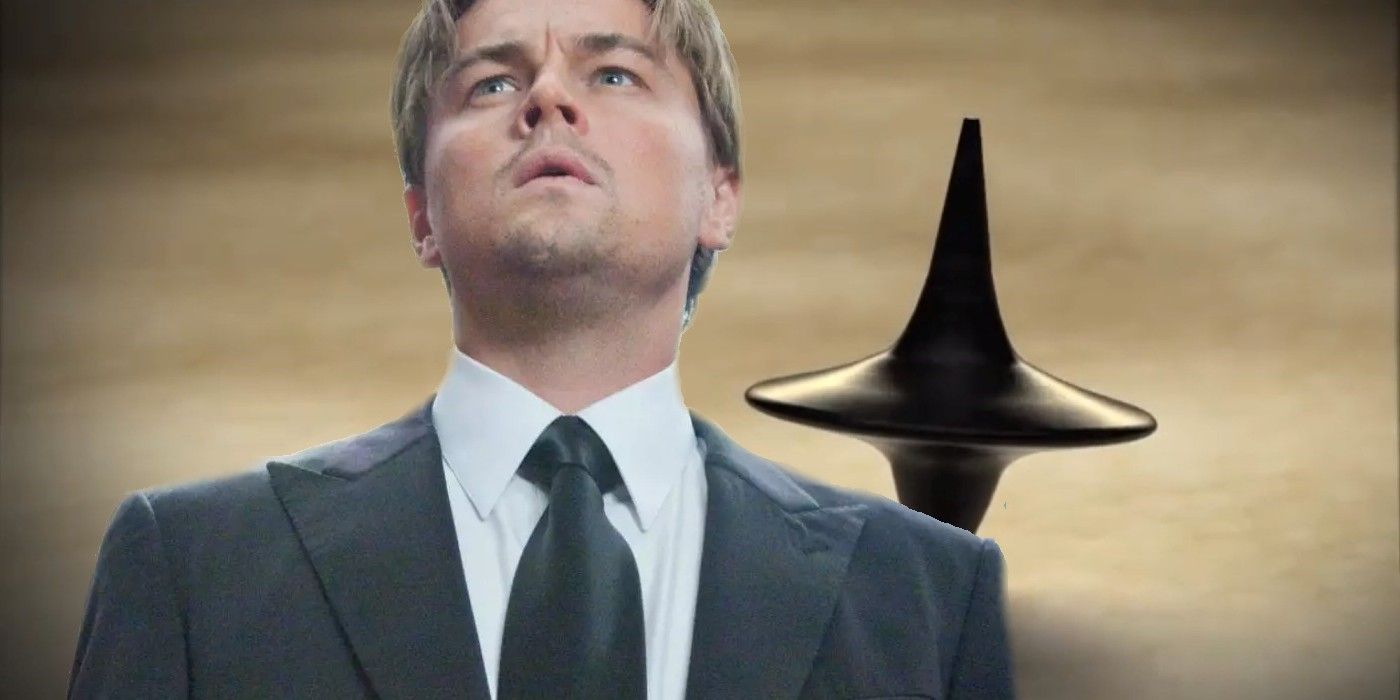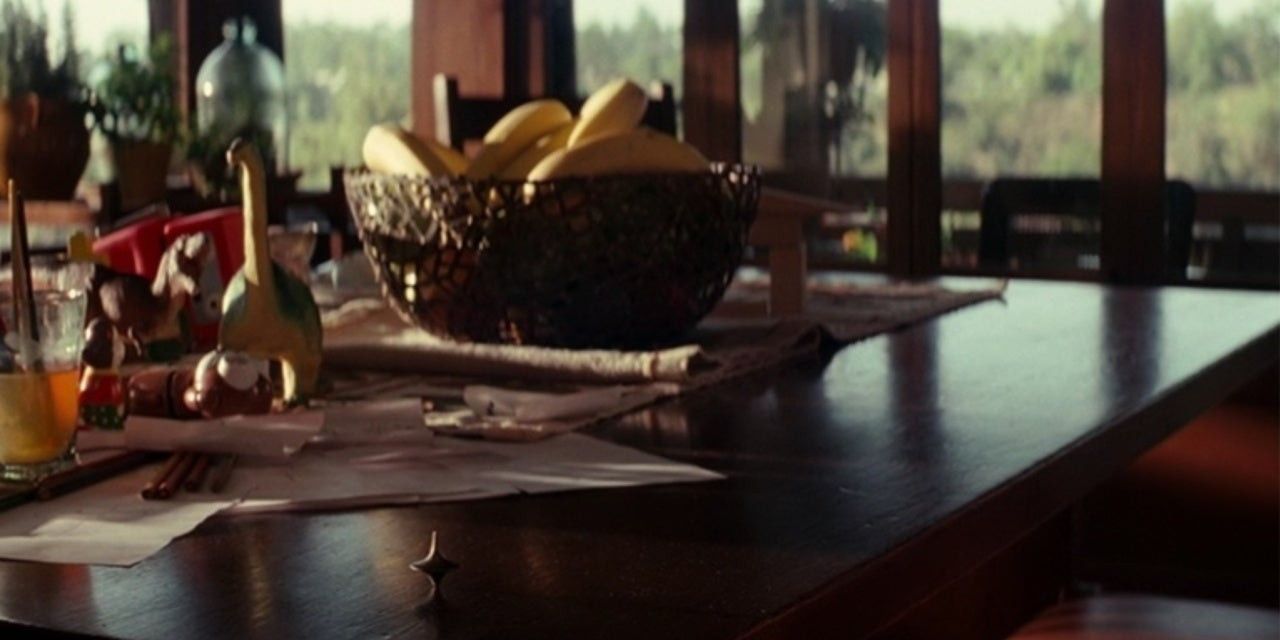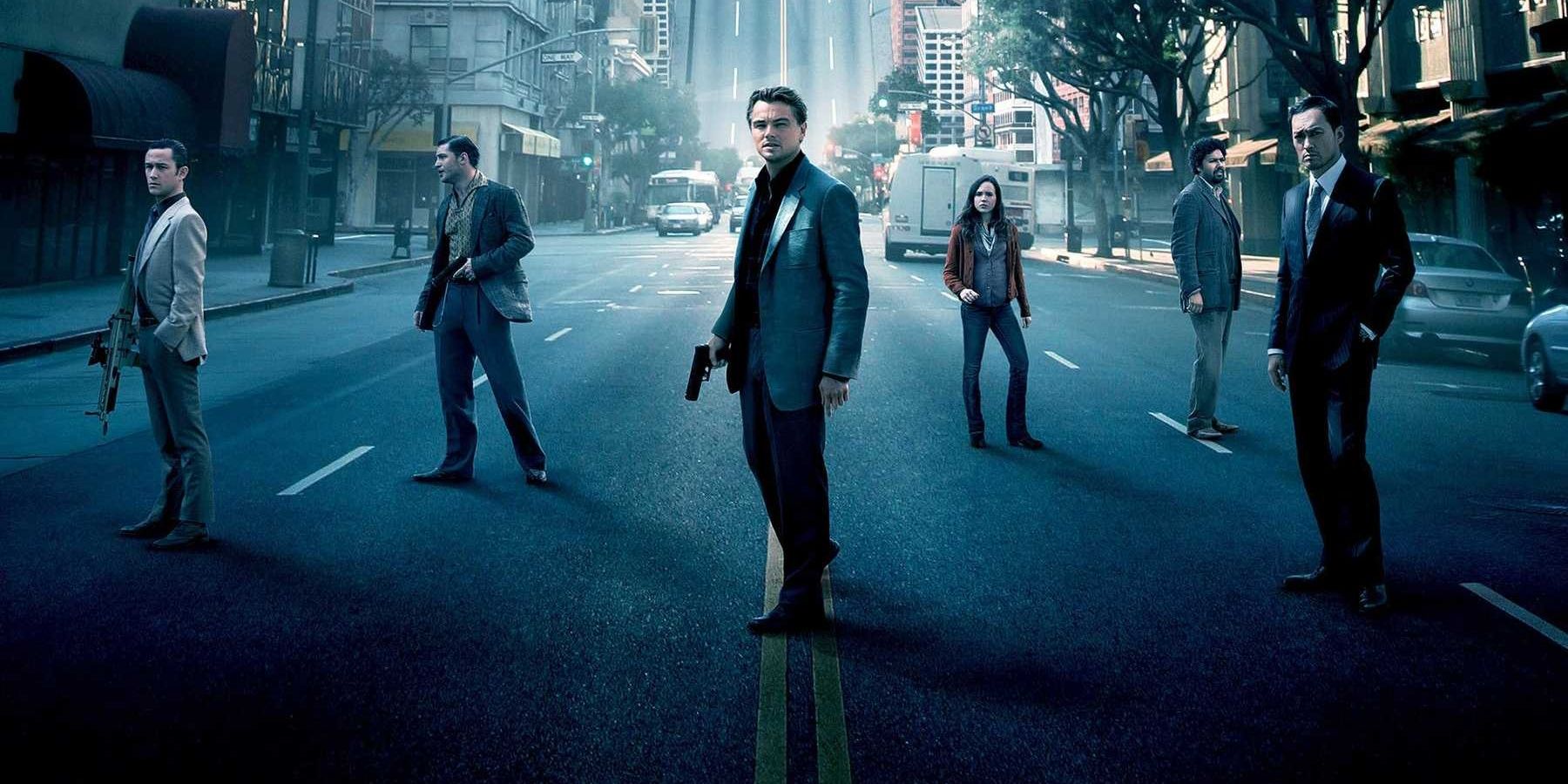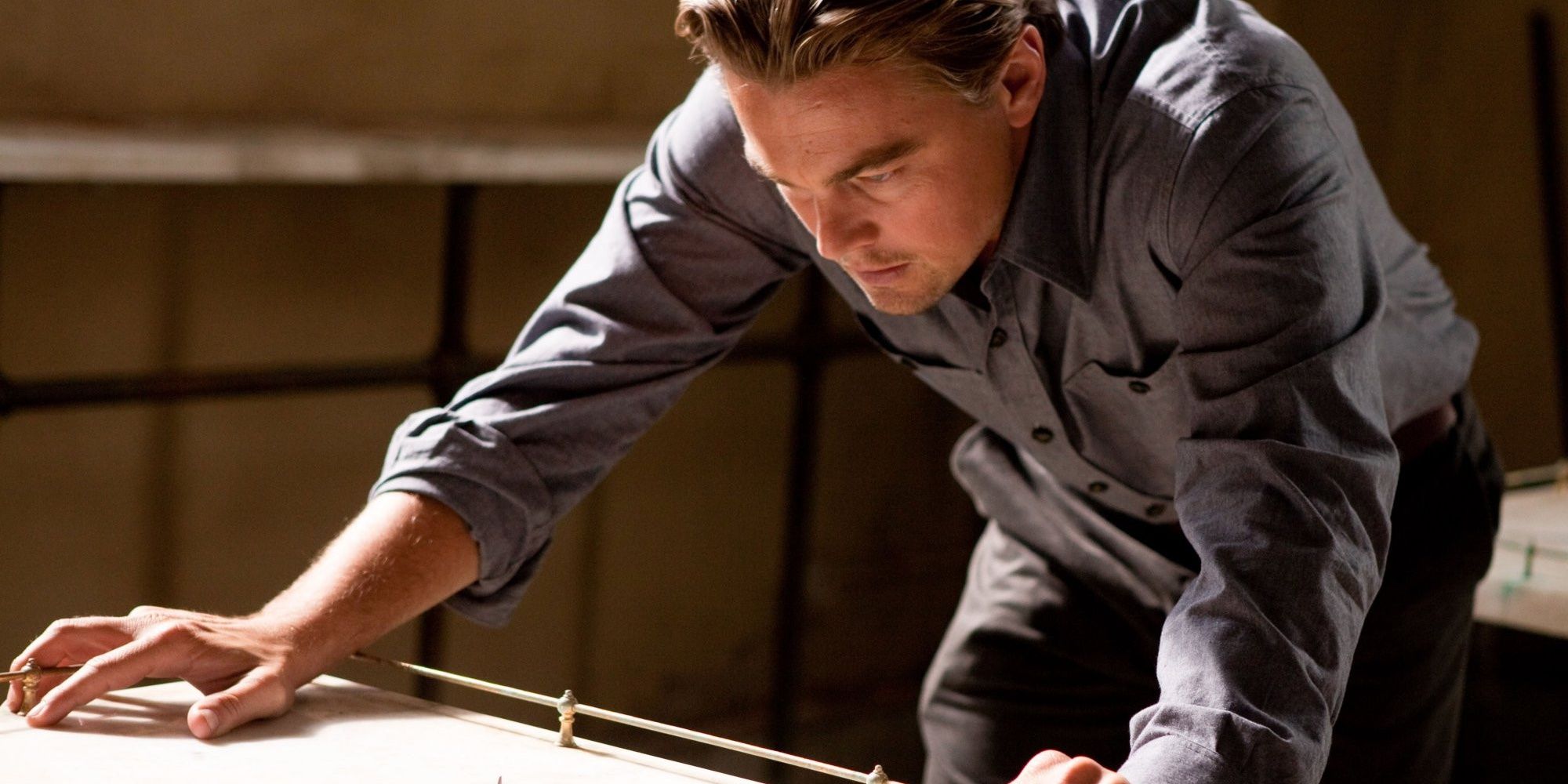A decade after its initial release, Inception still has one of the most perfect endings in movie history, and the scene's hidden meaning plays a significant part in that. In the mind-bending science fiction world of Inception, time passes faster in dreams than it does in reality, which might explain why it's already been an entire decade since Christopher Nolan's modern classic was released in theaters. In all of that time, Inception's ending remains one of Hollywood's most hotly debated and eagerly discussed.
The reasons behind Inception's enduring popularity extend from an original plot and stunning performances to the impressive and unique visual effects, but another key factor is the ending. Simultaneously fascinating and infuriating, Inception concludes on a boldly ambiguous note that still provokes discourse in 2020. But where most of this chatter revolves around whether or not Cobb's totem did a little wobble, or if the spinning top might not be his totem at all, the true meaning of the scene is often overlooked, and it's this subtext that makes Inception's closing moments perfect, even a decade later.
Inception's Ending Isn't What You Think
DiCaprio's Cobb successfully executes his supposedly impossible mission of implanting an idea via shared dreams, leaving Robert Fischer (played by Cillian Murphy) pondering the alternatives to taking over his father's business empire. Having fulfilled the objective, Saito (Ken Watanabe's character) grants Cobb's reward - a clean record and access to his children once again. Cobb is delighted to see his kids but, ever the man of caution, makes sure to check his totem to ascertain whether or not he's in the real world. For the first time, Cobb walks away before the totem stops spinning, not even bothering to wait and see if it stops, and Inception cruelly cuts away before the audience discover the truth.
As mentioned previously, this tantalizing finale has been endlessly dissected and debated over the years, and these days Nolan is lucky to escape an interview without being interrogated over Cobb's ultimate fate. But while the director's intention was obviously to encourage a certain amount of interpretation and discussion, the real meaning of Inception's ending is often glossed over. On several occasions, Nolan has stressed that whether or not the totem stops isn't the point; the real message is that Cobb doesn't care. For once, he steps away without knowing, and the idea is to reframe what the audience perceive as "reality." Throughout Inception, Nolan presents two very difference planes of existence: the real world and the dream world. The final scene is intended to blur those lines - Cobb's reality is whatever he chooses, and by the story's end, he chooses to be with his children, regardless of the cold hard facts.
While it's tempting to view Inception's ending as a typical movie thriller cop-out, Nolan insists that the scene was designed to move subjectivity ahead of objectivity in the pecking order of reality.
Why Inception Is Still Relevant 10 Years Later
There's little doubt that Inception will continue to be revered as a classic in the decades to come because, just like countless other iconic movies, it's well-written, brilliantly acted and daringly ambitious. Despite his DC stint with the Caped Crusader and a deeply envious back catalog, Inception will likely go down as Christopher Nolan's magnum opus. The factor giving Inception a slight edge in this contest is the film's philosophical and poignant ending. As Nolan himself acknowledges, sitting on the fence instead of providing clear-cut answers can often elicit groans from the audience, but Inception's ending still matters to people. So often when filmmakers leave the ending "up to the viewer's interpretation," the ambiguity ends up being detrimental to the movie's reputation, and more often than not, these final scenes age badly.
By contrast, Inception's ever-spinning totem has brought a timeless quality to the 2010 film. The foremost topic of debate may be whether or not Cobb was dreaming during the reunion with his children, but that's not why Inception keeps fans talking - it's Nolan's hidden message about the subjectivity of reality. Even if the audience don't register this secret layer of meaning at the time, the idea seeps through (somewhat ironically) into the viewer's subconscious. For 10 years, movie buffs have attempted to unearth a definitive answer to the question of the spinning totem, despite knowing full well that Nolan didn't devise a concrete solution. Are these fans feverishly investigating Inception's final moments because they're just that invested in Cobb as a character? Arguably, not. The reason Inception's ending remains such a heated point of discussion is because viewers want to know whether reality matters, or whether Cobb was right to walk away without looking.
These themes are universal, timeless and inherent to human nature. It's only natural for man to question their reality, and our species will likely continue to do so until the end of time itself. By hitting upon this key facet of existence, Inception's ending taps into the very core of the human psyche - a far more everlasting subject than merely "was Cobb dreaming?" And just as people will always ponder the reality around them, Inception will always be sitting on the DVD shelf (/movie hard drive/streaming service of choice) to remind those same folks that what really matters is how they perceive reality, not what someone else tells them it is. Therein lies the true strength of Inception's ending, and why we're here in 2020 still talking about it.
Inception's Ending Would Be Weaker If The Totem Mystery Was Answered
In Deal or no Deal, a contestant can cash out at any time, exchanging their chosen case for whatever sum of money the banker offers. Even if they opt to do this, the player will still be shown the value of the case they first selected. Whether this amount is higher or lower than the prize money already taken will dictate whether the contestant has "won" or "lost" the game. Showing "what they could have won" is a common game show trope designed to satisfy the natural curiosity of the audience. Of course, the entire charade is academic - the player has already won a cash prize and whether they deem that a success or not is subjective. A contestant earning minimum wage would be delighted to take away $1000 regardless of what her case was actually worth, but a rich city banker might be disappointed to walk away from the same sum.
Seeing this labored metaphor to its conclusion, Inception avoids taking same unnecessary path just to quench that same sense of curiosity. If Cobb's totem had stopped or continued spinning indefinitely (the "what they could have won" scenario), audiences certainly would've exited theaters scratching their heads a little less, and might've even experienced more satisfaction in the immediate aftermath. However, Inception would be much less special as a result. Nolan's 2010 effort would still be held up as an example of great filmmaking and astute storytelling, but its long-term legacy would be diminished.
Cinema is at its best when it reflects truths about the real world, and this comes not from watching the totem grind to a halt, but from asking why Cobb walks away, why he doesn't care - because just like our game show contestants, Cobb's victory is defined by his own point of view. As a criminal in the real world, he'll never be able to see his children, but at the end of Inception, whether he's dreaming or not, DiCaprio's protagonist finally gets the life he always wanted.
The primary argument put forward for finalizing Cobb's fate in Inception has always been to give the character a "proper" ending, but as Nolan has so often asserted, finding a reality he's content with is Cobb's proper ending. To know those answers for sure benefits the viewer only, not the character, and Inception is not a game show designed to continue wandering when the destination has already been reached. Inception is a thoughtful story that deliberately asks lofty questions with no clear answer and, just as Cobb and Saito do to Robert Fischer, encourages viewers to define their own existence. And the stunts are pretty good too.




